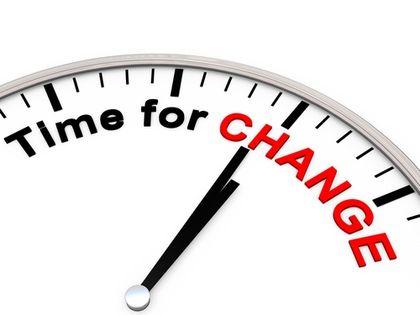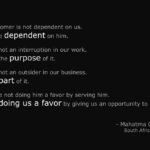I’m in the midst of preparing training material for corporate training for a group of customer relationship managers on Customer Experience Management. Their organization is focused on creating a memorable customer experience that evokes positive emotions and a pleasurable outcome that will have the customers attached to them. Lesson two for tomorrow is on emotional intelligence.
As I sit here going through the specific points that I intend to speak about, it occurs to me over and over that the essence of providing sustained exemplary customer service lies in the emotional intelligence of the service providers. And by service providers here I mean the actual contact points that directly deal with customers and all the support systems behind them that facilitate smooth transactions.
Why is it important to be emotionally intelligent in the customer handling process? What relationship exists between the ‘self’, ‘emotional health’ and ‘customers’? Well, the one thing that’s repeated to an almost clichéd degree is to not take things personally. Whilst this may seem like common sense, it actually isn’t. Why?
Picture a common scenario where an irate customer is (in typical Kenyan speak) ‘causing’. Something has gone wrong and the promised service has not been rendered or rendered below expectation. This customer is spewing all manner of expletives directed at you and you are the target of their wrath. It is quite an emotionally uphill task to remember that although this vitriol is directed towards you, and almost always directly being attributed to the customer’s perception of you being the cause of all their problems, that in reality it isn’t about you. It never is. This customer doesn’t know you from Adam and is not your relative. And therefore all that emerges from their being is an attack on the system, process, procedure or structure that has resulted in their disservice and not about you even if in reality it seems otherwise.
It is natural to have our hackles rise when we’re accused, and have our defenses naturally go up. As the irate customer speaks to us either directly or on phone, a progressively louder and louder voice rapidly speaks to us in our head saying ‘How dare he speak to me like that?’ ‘It’s not my fault and he’s blaming me?’ ‘I’m here breaking my back and he’s coming to shout at me like that?’ ‘Does he have to shout like that even if he has a problem?’ with several variations of the same consistently getting louder each sentence tripping over each other to be heard.
Now what separates the emotionally intelligent from the rest is the conscious effort to have these voices remain just that and not escape out of our mouths in response to the attack. An already irate customer is not going to have a miraculous change in dispensation when questioned about their irrateness. If anything that serves to irk them even more. And should any of these sentiments erroneously slip out, I guarantee that the customer’s level of annoyance will go up on the annoyance scale by several degrees, further ‘explosifying’ the situation.
What is promoted by emotional intelligence proponents is to take a deep breath, invoke an internal counter conversation in a voice that speaks with authority to damp down the dissenting internal voice that declares instead ‘This is not personal’ ‘This customer isn’t attacking me’ ‘They are only unhappy about something they feel has gone wrong whether perceived or real’ ‘What can I do to calm the situation and turn it around?’ and other take charge variations of the same.
This should serve to diffuse the explosive situation and if not, at the very least to diffuse any enraged emotions internally that may threaten to bubble to the surface. Not easy indeed, but practice makes perfect. In the beginning it may seem even a little silly to run these conversations around and asking the customer to ‘please give you a minute’ and walking away to re-compose may prove worthwhile. But as is touted 21 one days is all it takes to form a habit. By the 21st occurrence, you will have mastery over dealing in an emotionally intelligent manner with difficult customers and emerge emotionally unscathed from the battle zone.
Now doesn’t that sound like an inviting proposition? Come on ….let’s jump into the emotional intelligence boat and sail off to freedom. I invite you…………………..








